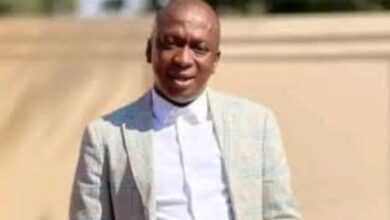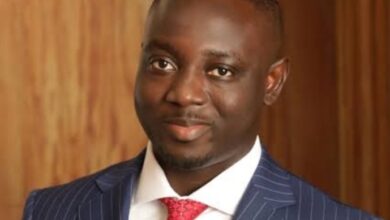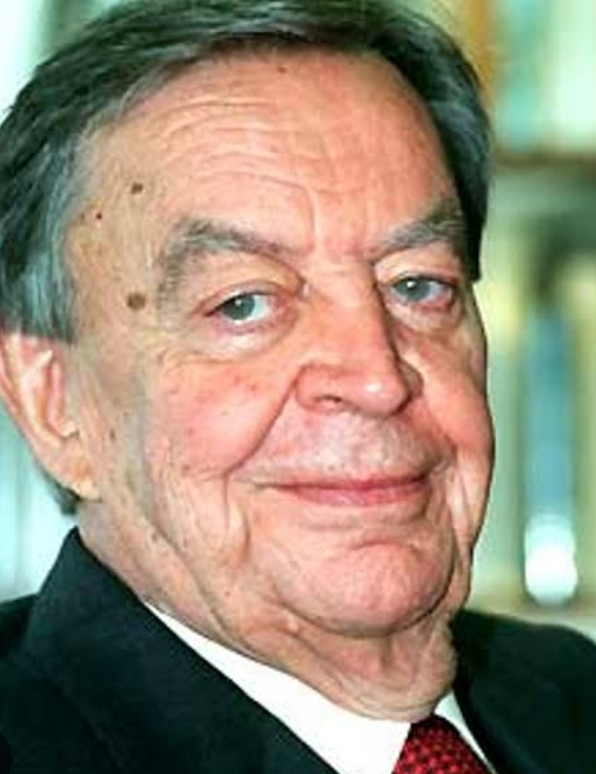David Booth Biography: Family, Age, Early Life, Career, Education, Parents, Net Worth 2025

David Booth Biography
David Booth is a well-known American businessman and investor. He started Dimensional Fund Advisors, a company that helps people invest their money wisely. Born in 1946, Booth grew up in a small town in Kansas. He learned about money and business from school and smart teachers. His work changed how people think about saving and growing money. Booth believes in using science and facts to make better choices in investing. This means he does not guess which stocks will win. Instead, he follows rules based on research.
Today, at 79 years old, Booth lives in Austin, Texas. He is famous not just for making money but for giving it away to help others. In 2025, he gave $300 million to the University of Kansas for sports programs. This is one of the biggest gifts ever for college sports. His story shows how hard work and smart ideas can lead to big success. Readers can learn from Booth about staying patient with money and helping the community. This biography will cover his early days, school years, family, job path, wealth, and more. It aims to teach simple lessons on life and finance.
Booth’s ideas come from a place called the efficient market hypothesis. This is a big word that means stock prices show all known facts, so it’s hard to beat the market by picking winners. He turned this into real ways to invest. Many people now use his methods to save for retirement or buy homes. By reading about Booth, you can understand why saving early and sticking to a plan matters. His life proves that anyone can achieve great things with the right mindset.
Early Life
David Booth came into the world on December 2, 1946, in Lawrence, Kansas. This town is home to the University of Kansas, which later became important in his life. As a kid, Booth enjoyed simple things like listening to radio broadcasts of Kansas Jayhawks games with his family. These moments built his love for sports and teamwork. Lawrence was a quiet place with strong community ties. It taught him values like hard work and being kind to others.
Growing up in the Midwest shaped Booth’s down-to-earth personality. He went to Lawrence High School, where he did well in studies and made friends easily. Kansas in the 1950s and 1960s was full of farms and small businesses. Booth saw how people worked hard to make a living. This inspired him to think about money and how to manage it better. He did not come from a rich family, but his home encouraged learning and curiosity.
One fun fact from his childhood is his interest in selling shoes. Later in life, he joked about it while talking about early jobs. These experiences showed him the basics of business, like talking to customers and handling sales. Booth also played sports, which helped him learn about winning and losing fairly. His early years were about building a strong base for future success.
Readers can learn from this that where you start does not limit where you go. David Booth’s simple start in Kansas led to big achievements. If you face challenges as a child, focus on learning and staying positive. Booth’s story educates us on how everyday experiences build character.
He moved around a bit as a young boy. His family shifted from Garnett, Kansas, to Lawrence when he was small. This change helped him adapt to new places. In school, he excelled in math and economics classes. These subjects sparked his interest in finance. By high school graduation, Booth knew he wanted to study business. His early life was a time of discovery and growth, setting the stage for his education.
Read Also: Anton Rupert Biography: Age, Family, Career, Net Worth 2025
Education
Booth’s school journey began at the University of Kansas. In 1968, he got a bachelor’s degree in economics. This field studies how money flows in the world. He learned about supply and demand, which are key ideas in business. The next year, in 1969, he earned a master’s degree in business from the same school. These degrees gave him tools to understand companies and markets.
But Booth wanted more knowledge. In 1969, he drove his car from Kansas to Chicago to join the University of Chicago’s business school. He started as a PhD student, aiming for the highest level of study. There, he met smart people like Eugene Fama, who became his teacher and friend. Fama’s ideas about efficient markets changed Booth’s thinking. He worked as a research helper for Fama, learning how to use data in investing.
In 1971, Booth left the PhD program but got an MBA instead. An MBA is a degree that prepares people for leadership in business. At Chicago, he also met Rex Sinquefield, who later became his business partner. Together, they wrote a paper on diversification, which means spreading money to reduce risk. This paper won an award in 1992.
Education taught Booth to think deeply about problems. He learned that facts beat guesses in finance. For readers, this shows why school matters. Even if you change paths, like Booth did from PhD to MBA, keep learning. His time in Kansas built basics, while Chicago added advanced ideas. Today, many use his lessons in their own studies or jobs.
Booth often says education is key to lasting success. He supports schools because they helped him. If you are a student, focus on subjects like economics. They can open doors to exciting careers. Booth’s path educates us on blending theory with real life.
Parents
David Booth’s parents were Gilbert and Betty Booth. They played a big role in his life. Gilbert and Betty moved the family from Garnett to Lawrence in Kansas when David was young. This move was for better chances, showing their care for the family’s future.
Gilbert worked hard to support them. He passed away in 1985. Betty died in 1995. Booth honored them with gifts, like a $4 million pledge to the University of Kansas in 2004. This was for the Booth Family Hall of Athletics. It shows how much he valued their support.
His parents taught him humility and perseverance. They encouraged education and community involvement. Though not much is known publicly about their jobs, they raised Booth with strong values. Readers can see that good parenting helps kids succeed. Booth’s story highlights thanking parents through actions.
Gilbert and Betty enjoyed family time, like listening to sports on the radio. This built Booth’s love for Kansas teams. Their influence lasted, even after they were gone. In philanthropy, Booth often remembers them.
Spouse and Relationship
David Booth married Suzanne Deal Booth in 1998. Suzanne is involved in art and conservation. She founded groups to protect cultural items. Their marriage blended business and art worlds.
They shared interests in giving back. Together, they supported museums and schools. But later, they divorced. The exact date is not public, but they remain connected through family and past work.
Booth’s relationship shows balance in life. Even successful people face personal changes. For readers, it teaches handling relationships with respect. After divorce, Booth focused on his kids and career.
Suzanne continues her work in art. Booth supports similar causes, like the Museum of Modern Art. Their time together added to his philanthropy.
Family
Booth has a close family. He and Suzanne have two children: son Chandler and daughter Erin. Chandler and Erin joined in family gifts, like to Kansas athletics.
David Booth is a proud grandfather. He enjoys time with grandkids, sharing stories from his life. Family is important to him, even with a busy career.
His siblings include relatives who supported his paths. Booth’s family honors his parents’ memory through donations. This teaches readers about family bonds.
Booth lives in Austin but visits Kansas often. His family shares his love for sports and education. They inspire his giving, like buying basketball rules for $4.3 million and donating them to Kansas.
In interviews, Booth says family keeps him grounded. Success means little without loved ones. This educates on prioritizing family amid work.
Career
David Booth’s job started after school. In the 1970s, he worked at Wells Fargo. There, he helped make one of the first index funds. Index funds follow the market, not pick single stocks. This was new and smart.
In 1981, Booth co-founded Dimensional Fund Advisors (DFA) with Rex Sinquefield. They started in a small apartment in Brooklyn. DFA used ideas from school, like efficient markets. They focused on small companies and factors that boost returns.
Under Booth, DFA grew big. By 2025, it manages over $800 billion. He was CEO until 2017, then became chairman. DFA helps everyday people invest low-cost.
Booth’s milestones include winning awards for innovation. He bridged school research and real investing. His philosophy: “The number of managers that can successfully pick stocks are fewer than you’d expect by chance.”
He serves on boards like the Hoover Institution. Booth’s career educates on patience in investing. Start small, build over time. DFA’s success shows science works in finance.
In 2025, DFA continues to grow, adding new strategies. Booth’s work influences ETFs and robo-advisors today. Readers can apply his ideas: Diversify, keep costs low, stay long-term.
His partnership with Fama won a Nobel in 2013 for Fama. Booth turned theory into trillions. This path from helper to leader inspires aspiring business people.
Read Also: Nicky Oppenheimer Biography: Diamond Magnate to Philanthropic Visionary
Net Worth
David Booth’s net worth is about $2.9 billion in 2025. This comes from DFA’s success. The company earns fees from managing money.
Forbes lists him as self-made. His wealth grew with DFA’s assets. In 2021, it was $2 billion; now higher due to market gains.
Booth gives much away, like $300 million in 2025. He signed the Giving Pledge in 2018 to donate half his fortune.
Net worth teaches about building wealth slowly. Booth did not get rich quick. He invested wisely over decades. Readers: Save regularly, avoid risky bets.
His wealth funds good causes, showing money’s power for change.
Conclusion
David Booth’s life is a mix of smart work, family love, and giving. From Kansas kid to finance leader, he shows education and ideas matter. His career at DFA changed investing for many. With $2.9 billion, he chooses to help others.
Booth’s story educates on values like patience and generosity. He faced challenges but stayed true. At 79, his legacy grows with recent gifts.
Call to Action
Learn from David Booth: Start investing simply today. Read about efficient markets. Give to causes you care about. Visit DFA’s site or donate to schools. Share his story to inspire others. Your actions can make a difference, just like Booth’s.



